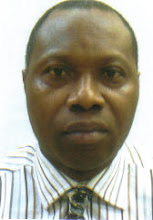The crisis in Nigeria's education sector: A pointer to the insensitivity of the Federal Government
I have read an article titled "Nigeria: Looking Beyond ASUU's Aluta Continua" credited to one Dr. Thomas Olusanya and published in the AllAfrica.com with keen attention. Sincerely, I did not expect anything more lucid from a typical Nigerian civil or public servant like Dr. Thomas Olusanya, a retired Director in the Ministry of Education especially that the ongoing ASUU strilke is about pointing accusinbg fingers on the Federal or/and State Government. It is unknown why Dr Olusanya failed to indicate the tier of government his ministry was affiliated to - whether State or Federal.
With due regards to our dear action Governor of Lagos State, who I see as a good ambassador of the newbreed progressive politicians in Nigeria, His Excellency Gov Fashola, let me state that there is no misnomer in the position of ASUU to negotiate a unified salary structure for the public universities (State and Federal). The graduates from federal universities do contribute to the economic development of the respective States through the national service and ultimate permanent employment, ditto for products of State universities working in Federal institutions. It is reasonable to add too, that the UN regulations that stipulates the allocation of 26% of the national recurrent budget on Education was signed to by the Federal Government of Nigeria and becomes binding on the component State Governemnts.
To go down the memory lane, it was one of the proposals by ASUU during one of its past struggles, precisely 1992 that advised Nigerian Government on how to adequately fund education that gave rise to the founding of the Education Tax Fund (ETF) under the instrument of the Education Tax Fund Act, 1993. Whether that establishment (ETF) lives to its statutory responsibilities to the education sector or not is not a matter for discussion here.
ASUU proposed that "every corporate body in Nigeria pays 2% of their final profit as "education tax" for collection by the Federal Inland Revenue Service, as a way to augment the vote for education by the Federal Government and which can be used for some intervention projects in the higher education sector". I am very sure that educational institutions owned by both the State and Federal tiers of government are benefitting in some kinds or the other from that initiative.
I am very certain that the current ASUU strike is linked to the non-fulfilment of some of the provisions of the 1992 ASUU/FG Agreement. It was provided for in that agreement that it shall be continually reviewed. That makes the contractual document to subsist till date. More so, it was an agreement between ASUU (a body of academic staff of the Federal and State Universities in Nigeria) and the Federal Government of Nigeria.
Afterall, the Federal Government, through the Revenue Mobilisation Allocation and Fiscal Commission has always been the one deciding on the wages, including the National minimum wage, for all federal, state and local governments in Nigeria. It is in this spirit that our dear State Governors should be weary of ill-informed advice from some of their education administrators that might be having some sentiments/bias against members of the ivory tower.
ASUU remains the most prominent genuine stakeholder which is patriotic about its concern for enduring educational system in Nigeria. Education remains the best legacy anyone can bequeath his /her children. Education is the bedrock of the future advancement that any country can yearn for.
Finally, it is in the light of the foregoing and for the sake of anything that is patriotic enough that all hands need to be on deck to make the Federal Government to be alife to its responsibility to the education sector. The ongoing ASUU's struggle is required for the betterment of Nigeria's future.
Ayo Onatola

